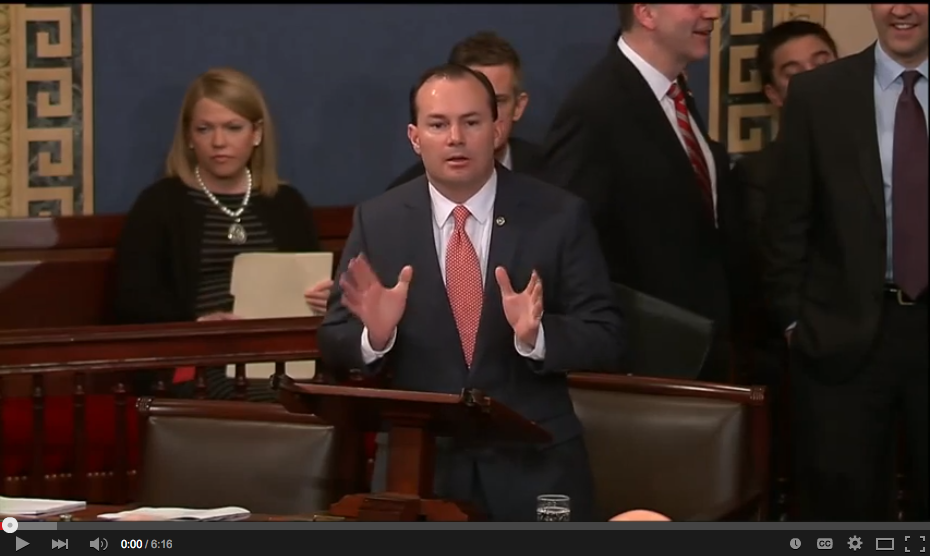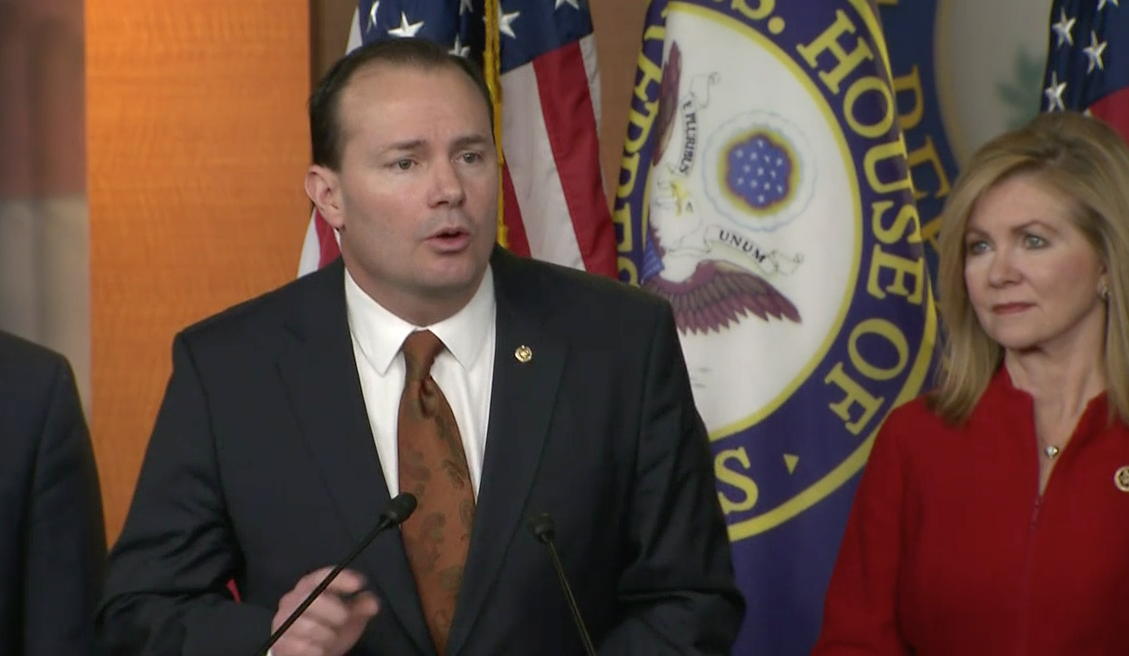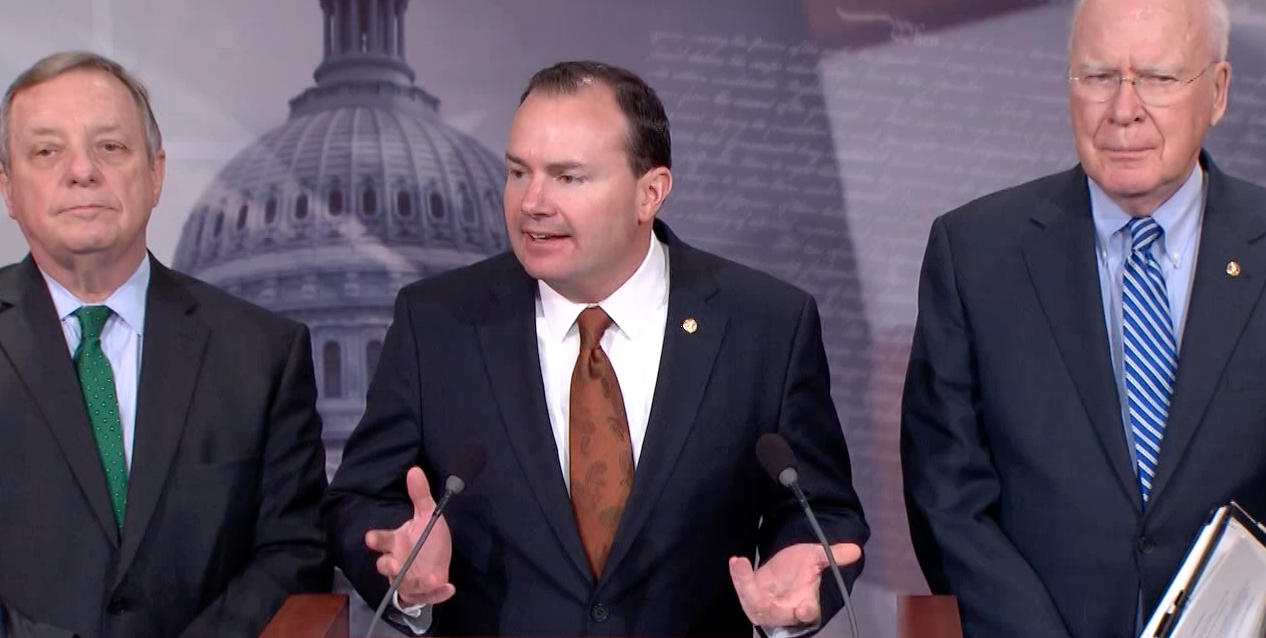Press Releases
Lee Releases Statement on the FCC’s Decision to Regulate the Internet
Feb 27, 2015
WASHINGTON – Today, Senator Mike Lee issued the following statement regarding the Federal Communications Commission’s decision to subject the Internet to federal regulation as a public utility under Title II of the Communications Act
Lee: Congress Should Use It’s Power of the Purse to Prohibit the Implementation of Executive Amnesty
Feb 27, 2015

WASHINGTON – Today, Senator Lee spoke on the Senate floor before attempting to offer his amendment to H.R. 240, the Department of Homeland Security Appropriations Bill.
Lee Attends Bipartisan Meeting at White House on Criminal Justice Reform
Feb 25, 2015
WASHINGTON – Today, Senator Mike Lee attended a bipartisan meeting at the White House to discuss the need to modernize and reform our criminal justice system.
Lee Holds Bicameral Press Conference on DHS Funding Bill
Feb 12, 2015

WASHINGTON – Today, Senator Mike Lee held a bicameral press conference to highlight the need for the Senate to proceed to debate on the funding bill for the Department of Homeland Security.
Lee, Durbin Introduce Smarter Sentencing Act of 2015
Feb 12, 2015

WASHINGTON—Today, U.S. Senators Mike Lee (R-UT) and Dick Durbin (D-IL) were joined by U.S. Senators Ted Cruz (R-TX), Patrick Leahy (D-VT), and Cory Booker (D-NJ) to announce legislation to modernize federal drug sentencing polices by giving federal judges more discretion in sentencing those convicted of non-violent drug offenses.
Lee, Flores: Time to End Democrat Obstruction of DHS Funding Bill
Feb 10, 2015
WASHINGTON – Today, Senator Mike Lee of Utah, Chairman of the Senate Steering Committee, and Congressman Bill Flores of Texas, Chairman of the House Republican Study Committee, released the following statements regarding Senate Democrats’ repeated obstruction of the Department of Homeland Security funding bill, H.R. 240
Bipartisan, Bicameral Group Introduces Bill to Protect Online Privacy
Feb 4, 2015
WASHINGTON – Today, Senator Mike Lee introduced a bipartisan bill that modernizes our nation’s electronic privacy laws and brings protections against warrantless search into harmony with the technological realities of the 21st century. Co-sponsoring the “Electronic Communications Privacy Amendments Act of 2015” (ECPA) is Senator Pat Leahy (D-VT), who sits on the Senate Judiciary Committee with Senator Lee.
Lee: Let’s Begin Debate on DHS Funding, Executive Amnesty
Feb 2, 2015
WASHINGTON – Today, Senator Mike Lee said the Senate should begin debate on the funding bill for the Department of Homeland Security that recently passed the House of Representatives. He said the debate would give senators the opportunity to weigh in on President Obama’s executive action.
Lee, Messer Introduce Bill to Give Parents More Control Over K-12 Education Decisions
Jan 29, 2015
WASHINGTON – Today, Senator Mike Lee of Utah and Congressman Luke Messer of Indiana introduced legislation to make a quality K-12 education more accessible and affordable to low-income parents and students.
Lee to Chair Antitrust Subcommittee, Klobuchar Will be Ranking Member
Jan 26, 2015
Today, Senator Mike Lee announced that he will chair the Senate Judiciary Subcommittee on Antitrust, Competition Policy, and Consumer Rights, with Senator Amy Klobuchar (D-MN) as the Ranking Member.